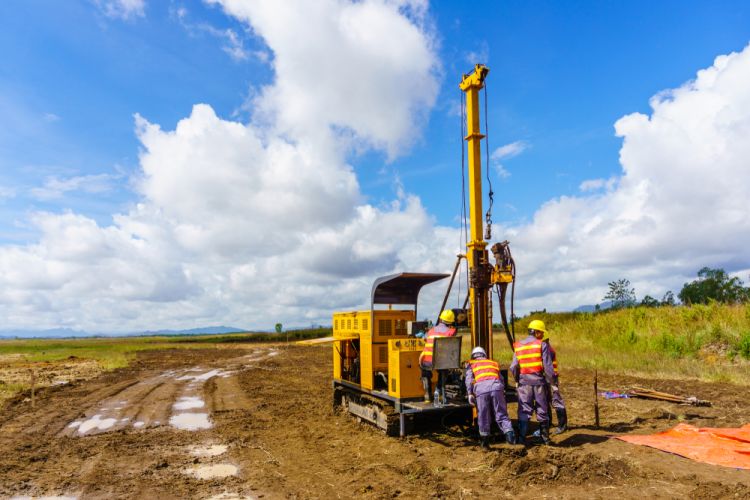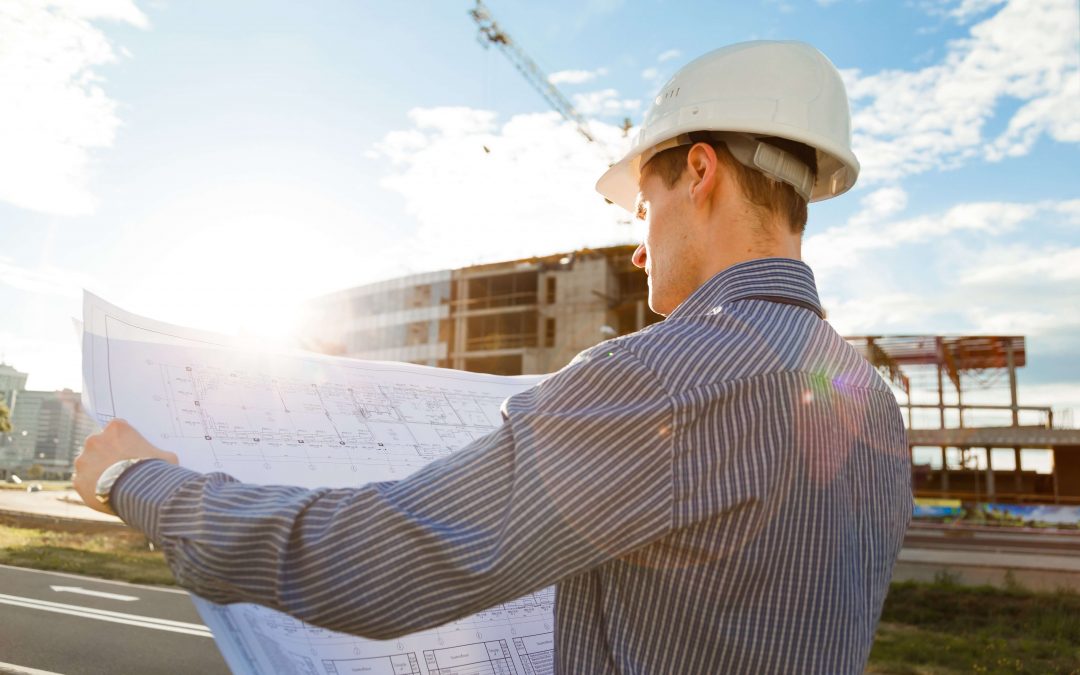The Best Guide To Specialized Geotechnical Engineering Solutions
The Best Guide To Specialized Geotechnical Engineering Solutions
Blog Article
The Best Guide To Specialized Geotechnical Engineering Solutions
Table of ContentsThe Facts About Specialized Geotechnical Engineering Solutions RevealedSpecialized Geotechnical Engineering Solutions - An OverviewSpecialized Geotechnical Engineering Solutions for DummiesSpecialized Geotechnical Engineering Solutions for Beginners
They carry out site investigations, gather examples, perform lab examinations, and assess information to evaluate the suitability of the ground for building tasks. Based upon their findings, geotechnical engineers provide suggestions for foundation layout, slope security, keeping structures, and reduction of geotechnical dangers. They work together with various other specialists, such as engineers, architectural engineers, and building groups, to make certain that geotechnical considerations are incorporated into the overall task design and application.
Foundation Design: Geotechnical engineers play a vital function in creating foundations that can safely support the desired framework. They analyze the dirt problems and tons demands to identify the suitable foundation kind, such as superficial structures (e.g., footings), deep foundations (e.g., heaps), or specialized strategies like dirt enhancement. They think about factors such as negotiation limits, birthing capability, and soil-structure interaction to develop optimum structure styles.
What Does Specialized Geotechnical Engineering Solutions Mean?
Right here are some types of geotechnical designers: Foundation Engineer: Structure engineers concentrate on developing and assessing foundations for frameworks - Specialized Geotechnical Engineering Solutions. They evaluate the dirt problems, tons needs, and site attributes to determine one of the most appropriate foundation kind and layout, such as shallow structures, deep structures, or specialized techniques like stack structures
They carry out area screening, collect samples, and examine the collected data to define the dirt residential properties, geologic developments, and groundwater conditions at a site. Geotechnical Instrumentation Engineer: Geotechnical instrumentation designers concentrate on tracking and measuring the actions of dirt, rock, and structures. They install and keep instrumentation systems that keep an eye on aspects such as dirt settlement, groundwater levels, incline movements, and structural variations to analyze performance and offer early warnings of prospective concerns.
In the workplace environment, geotechnical designers utilize specialized software program tools to execute estimations, develop layouts, and examine data. Specialized Geotechnical Engineering Solutions. They prepare reports, review project specifications, communicate with clients and employee, and coordinate project activities. The office setup gives a conducive setting for study, evaluation, and cooperation with various other specialists associated with the job
They often go to project sites to conduct website examinations, examine geotechnical conditions, and gather data for evaluation. These visits entail taking a trip to various places, in some cases in remote or challenging surfaces. Geotechnical designers may perform dirt tasting, conduct tests, and monitor construction tasks to make sure that the geotechnical elements of the project are being carried out properly.
The 9-Second Trick For Specialized Geotechnical Engineering Solutions
Geotechnical designers also work in specialized geotechnical research laboratories. Geotechnical laboratory engineers work thoroughly in these settings, handling testing devices, running tools, and recording data.
Keeping Wall surfaces: Developing wall surfaces that hold back soil to avoid landslides and give security on sloped surfaces. Embankments and Earthworks: Designing embankments for roads, railways, and dams to ensure they remain steady under anxiety. The mining market counts greatly on geotechnical design to make certain the safety and security and longevity of its operations.
With this in mind, we have developed our program to prepare trainees for success. The Geotechnical Engineering program at the University of Delaware uses opportunities for advanced study and research in: Soil and rock mechanics Soil-structure interaction Constitutive modeling Computational geomechanics Structure and planet frameworks design Ground renovation Slope stability and landslide stabilization Liquefaction of soils and earthquake engineering Laboratory characterization of geomaterials and soil support Ecological geotechnics Offered the strong demand for improvement to our country's infrastructurethe American Society of Civil Engineers gave the united state
Geotechnical design is a branch of civil engineering; nonetheless, it involves utilizing clinical approaches and concepts to accumulate and interpret the physical residential or commercial properties of the ground. Geotechnical designers are involved in all stages of the design of frameworks, from idea to construction. Their work is crucial in read what he said the layout and planning process as they analyze the stability of soil, clay, silt, sand, and rock, before building beginning.
Specialized Geotechnical Engineering Solutions Things To Know Before You Buy
This is adhered to by a ground examination based upon the searchings for of the workdesk study and involves trial pitting and sampling to uncover any type of possible concerns. Geotechnical designers function within multidisciplinary groups, sustained by intermediate and jr designers as well as by CAD specialists. As a senior geotechnical engineer on a hydro plant project, tasks may consist of joining technological testimonials (e.g., peer testimonials), tailings clog examinations, dam safety and security testimonials, and various other researches connected to the layout and building and construction of mine waste centers.
While some experts specialise entirely in geotechnics, others may function under titles like design rock hound or ground engineer within similar capacities. As a geotechnical designer, you'll require to: develop and preserve relationships with customers and various other experts included in the site, throughout each projectmaintain safety and security criteria on website bear in mind cost effects when you make recommendationsstudy geological maps and airborne photos from a variety of resources and from various time periodsexamine construction plans to see just how practical they are based on your understanding of the siteinvestigate threats or geological dangers for the sitesearch for ecologically sensitive attributes, such as garbage dump start to create valid and interpretive ground modelsplan area investigationsdrill and analyse samples of bedrock, dirt, groundwater and extra products oversee other specialists on sitesolve technological issues as they emerge, such as unforeseen structures at drill sitesmonitor problems during and after building and construction to ensure structures are secure in the short and lengthy termadd data collected on website to your first researchcreate geotechnical calculations, illustrations, and two or three-dimensional computer system models translating the datamake recommendations regarding the proposed use the website.
There are great deals of possibilities to satisfy new click to read more people, as you'll function with a variety of specialists at every website. The job can be stressful as you might be responsible here are the findings for the security of others while on site. There is likewise a high level of financial obligation, as the suggestions you make can have significant price effects.

Report this page